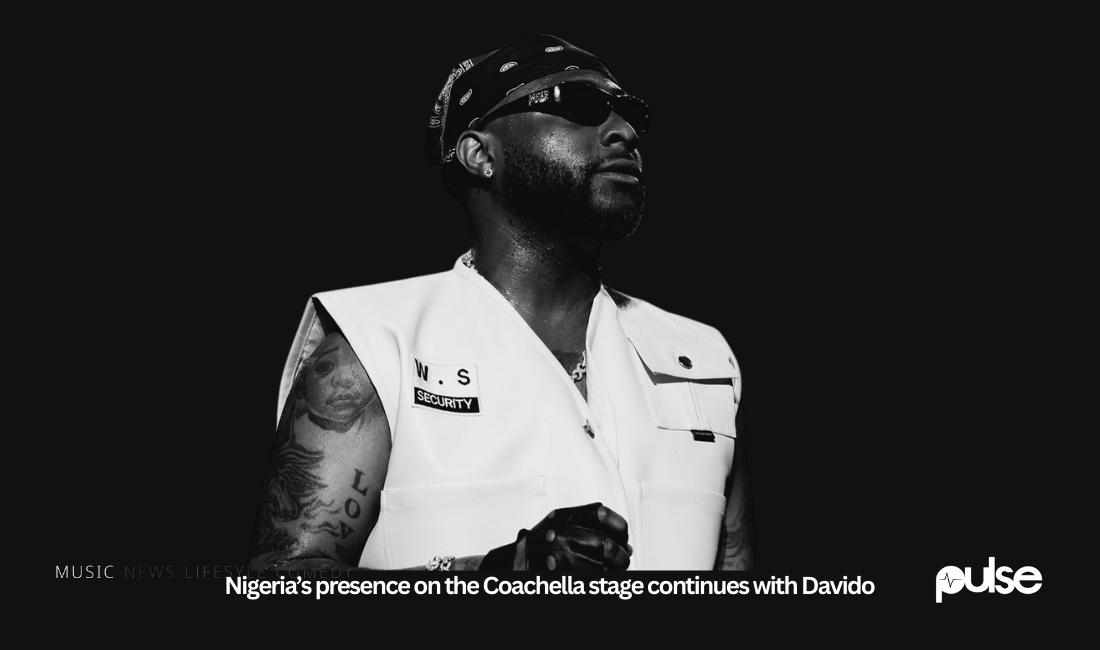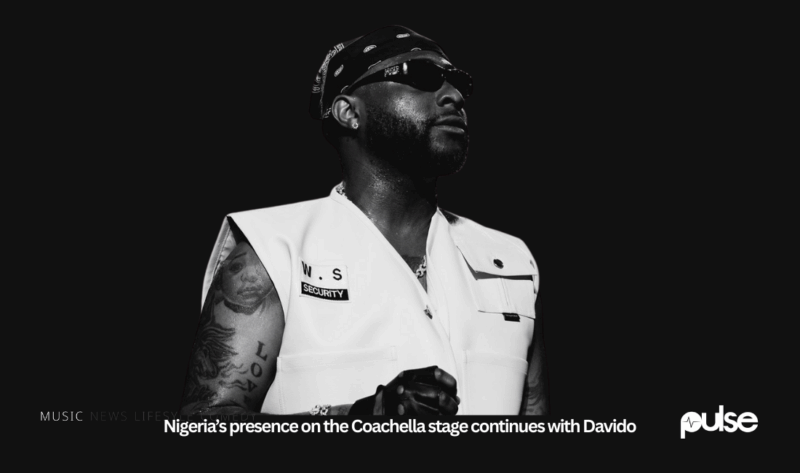
Davido has been announced as one of the performers at the 2026 Coachella Festival, extending Afrobeats’ growing presence at the world’s biggest music stage.
The multi-award-winning Afrobeats hitmaker will be making his Coachella debut at the 2026 festival, for which Canadian superstar Justin Bieber, American singer Sabrina Carpenter, and Colombian sensation Karol G have been announced as headliners.
Davido’s presence at the 2026 Coachella marks a continuous presence for Nigerian music at the famous festival.
Nigeria’s rich history at Coachella
The history of Nigerian acts on the Coachella stage goes back nearly a decade.
In 2018, Wizkid was billed to perform but was unable to attend due to visa complications, while Seun Kuti and Egypt 80 carried Afrobeat’s revolutionary fire to the festival.
A year later, Mr Eazi and Burna Boy flew Nigeria’s flag at the famous festival. Grammy-winner Burna Boy delivered one of the most talked-about sets of 2019, following his now-famous protest over the small font size of his name on the lineup poster. His performance came at the inception of the international fame that followed the release of his Grammy-nominated album ‘African Giant’.
Seun Kuti and the Egypt 80 returned for another Afrobeat set in 2020 before a Nigerian absence in 2021. In 2022, CKay delighted the Coachella crowd with a rendition of his global smash hit ‘Love Nwantiti’,
Burna Boy returned to Coachella festival for another electrifying performance in 2023.
2024 saw the largest presence of Nigerian artists on the Coachella stage with two-time Grammy winner Tems, Wizkid, Spinall, Fireboy, and Teni all performing.
In 2025, Seun Kuti and the Egypt 80 returned for their third performance while Rema made his debut on the Coachella stage.
A reflection of Afrobeats’ global rise
The successive appearance of these stars at festivals like Coachella captures the popularity and acceptance of Nigerian music on the global stage.
It shows that the increase in the streaming of Nigerian music is matched by more demand for live music experience from a continuously growing international audience.
With every performance on the global stage, Nigerian music continues to become one of Africa’s foremost cultural exports.








